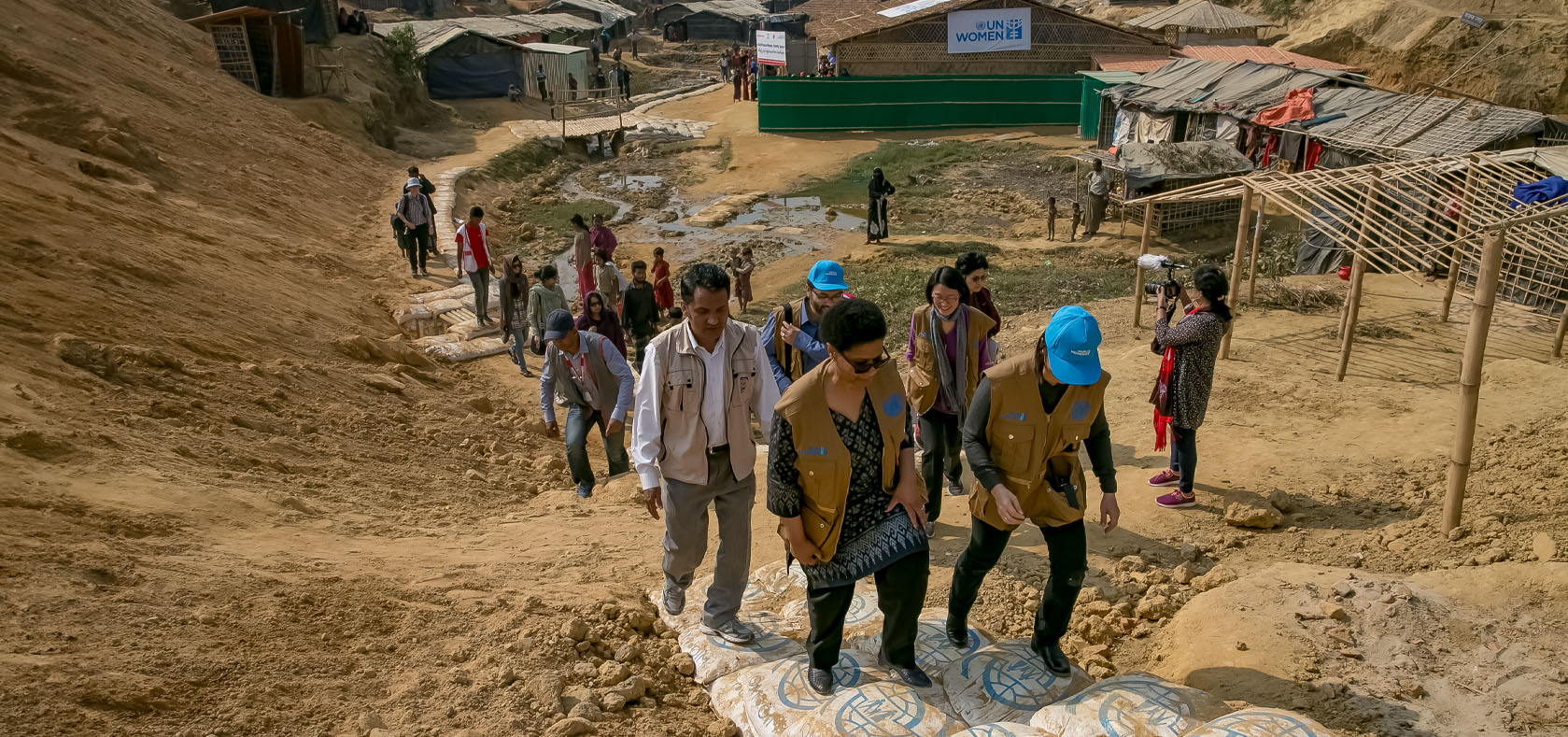Learn more
UN Women Regional Office for Asia and the Pacific:

Featured events:
![[banner]](/sites/default/files/2023-11/unw-cop28-finland.jpg)
UN Climate Change Conference (COP 28) side event:
What’s your peace?
Women leading the fight against climate change and complex crises in Asia
3 December 2023 | 09:00-09:45 AM, (Dubai) at COP28 Finland Pavilion, Expo City Dubai (blue zone) Read more
See also:
![[banner]](/sites/default/files/2023-11/unw-cop28-16-9-pakistan.png)
UN Climate Change Conference (COP 28) side event:
Price for Peace
Importance of gender equality and gender-responsive finance to combat climate change
4 December 2023, 11:00-12:00, (Dubai) at COP28 Finland Pavilion, Expo City Dubai (blue zone) Read more
The climate change emergency is a defining threat to peace and security in the 21st century. Communities in Asia and the Pacific, especially those on the frontlines of the climate crisis, are grappling with this emerging challenge in their daily lives.
Climate change impacts exacerbate risks to peace and security, placing additional strain on already vulnerable populations. Gender roles, norms and power imbalances shape how women and men of different backgrounds experience, respond, or contribute to, insecurity in a changing climate. Understanding these gender dynamics is key to both reducing vulnerabilities and seizing opportunities to advance gender equality, resilience and peace.
Women are disproportionately affected by climate change due to their high reliance on natural resources and exclusion from decision-making, yet they play crucial roles in disaster response, recovery and natural resource management. Promoting their participation and leadership in climate change adaptation and natural resource management is increasingly acknowledged as essential in addressing the root causes of conflict and vulnerabilities.
Recognizing that gender, climate, peace and security are closely linked, UN Women will pursue integrated action to address this nexus.
UN Women’s approach
In partnership with the Governments of Australia and the Republic of Korea, UN Women has developed a Regional Framework Towards Inclusive and Peaceful Societies (2023-2027), outlining strategies to tackle the most pressing governance and peace and security challenges in Asia and the Pacific, including climate security. A relatively new term, climate security refers to the impacts of climate change on peace and security.
The Regional Framework aims to support countries to advance and implement the Women, Peace and Security (WPS) agenda across the Asia-Pacific region. To effectively promote women’s leadership, participation and protection, and to foster gender-responsive relief and recovery, the WPS agenda must be leveraged to address the security risks and challenges that climate change poses to this region.
Through the Regional Framework, UN Women aims to:
In 2024, UN Women will launch a definitive guide based on country experiences and assessments on the integration of climate change in WPS national and local action plans in Asia and the Pacific.
International climate change and security dialogue
UN Women is partnering with governments, civil society and sister UN agencies to empower women and girls as change agents in addressing climate security threats. For example, we are enabling women peacebuilders to engage in international climate change dialogue to highlight the benefits of the WPS approach for more resilient communities and societies.
This includes supporting their participation at the UN Climate Change Conference (COP28) in Dubai to share their lived experiences and grassroots solutions and, in doing so, to underscore the synergies between gender equality, peacebuilding and climate action. (See What’s your Peace? and Price for Peace).
Learn more
UN Women Regional Office for Asia and the Pacific: